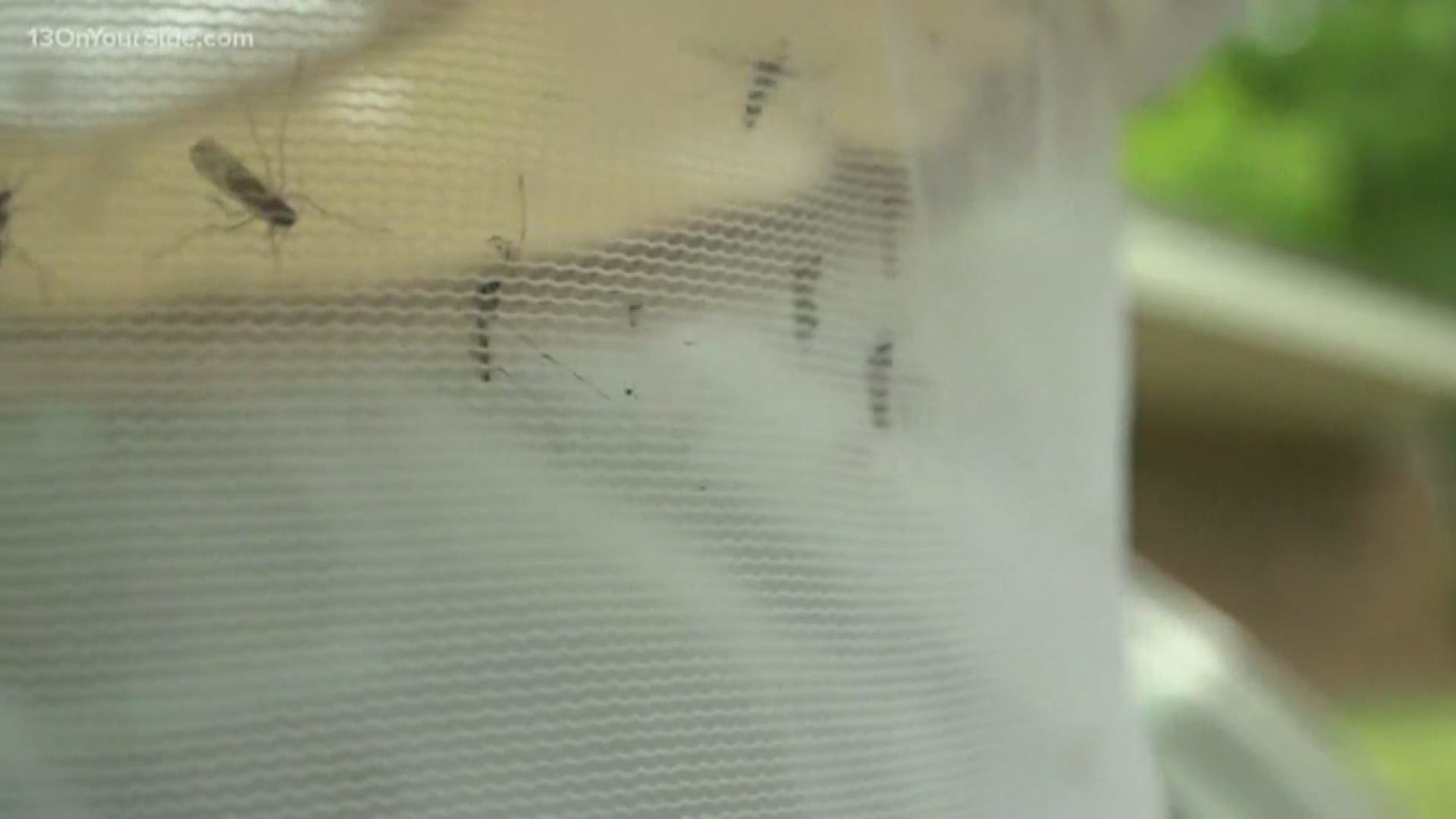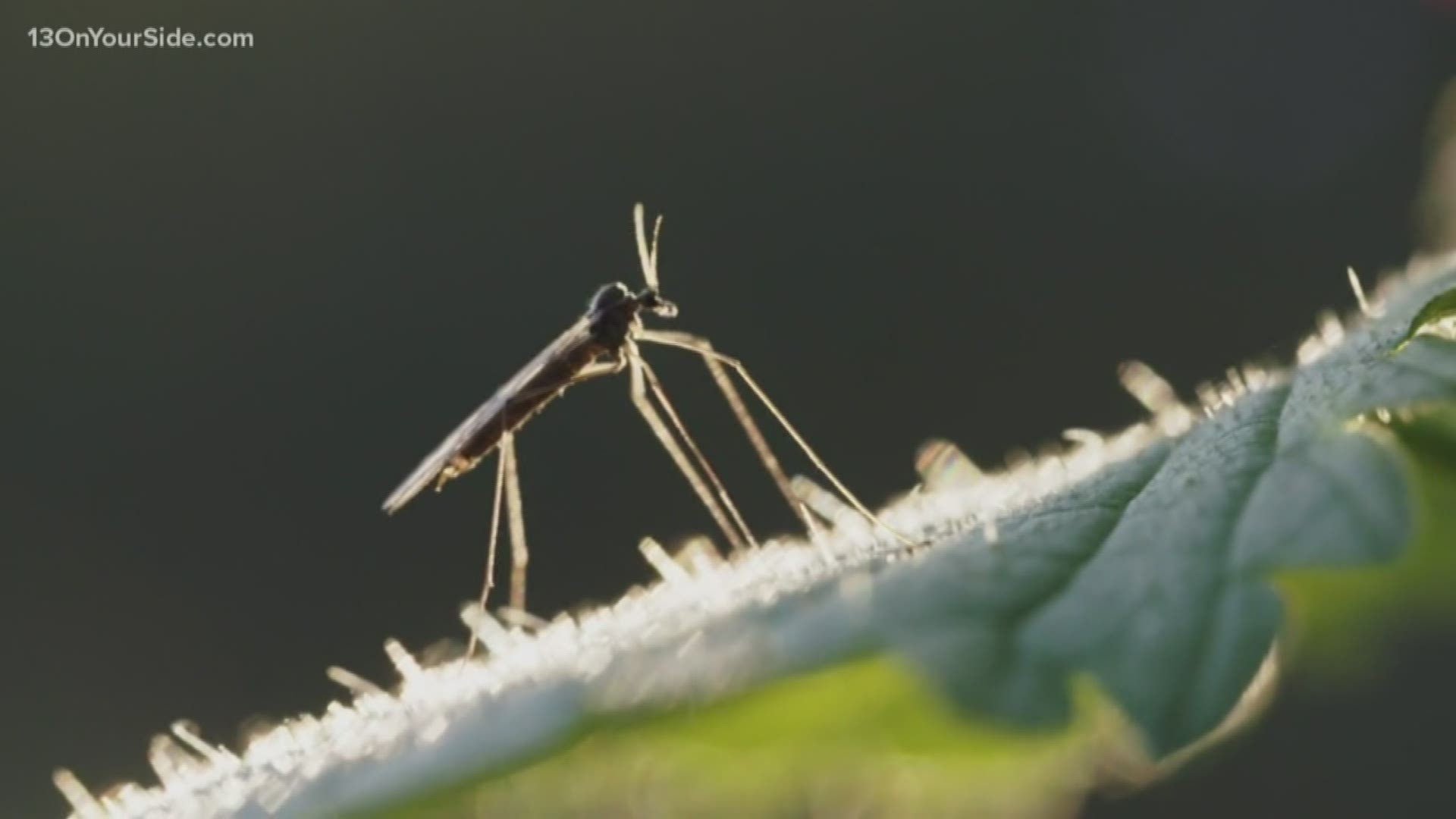Three people have died in Michigan's largest outbreak of Eastern Equine Encephalitis (EEE), a rare mosquito-borne virus.
With warm weather projections ahead and a continuing spread of the disease in both humans and animals, the Michigan Department of Health and Human Services announced Friday it would conduct aerial pesticide spraying in areas where the disease has been contracted.
Initially, the state planned to begin spraying on Sunday night, but weather delayed the effort. Spraying now begins around 7:30 p.m. Monday for Cass, Berrien, Van Buren and St. Joseph counties.
Since residents caught wind of the announcement, many of them have opted out of the spray, which is what led to the cancellation of the spray in Kalamazoo County. If a resident opts out, an area of 1,000 by 1,000 feet around the residence will not be sprayed.
"This will reduce the overall treatment effectiveness in the area. Mosquito populations upwind of the opt-out area will not be reduced, and neighbors will not benefit from the reduction in mosquito numbers," said MDHHS spokesperson Lynn Sutfin, in an email Monday.
There is no quantity threshold required to cancel application in an entire area; Sutfin said the decision is based on the proximity of the requests.
The health department along with Clarke, the pesticide production company, have said there are no adverse health impacts to humans or animals, with the exception of pollinators and aquatic life.
RELATED: FAQs about EEE and aerial spraying
A description of Merus 3.0, the pesticide Michigan has chosen to use, reads that it can be toxic to aquatic organisms. However, a spokesperson for the company said they will not be using enough of the product to cause harm.
"In the amount that we use (about a tablespoon per acre), the application should not have any adverse impacts on aquatic wildlife," said Laura McGowan, a spokesperson for Clarke. "It's used around bodies of water routinely in states like Ohio, Illinois, Florida and California."
MDHHS has said that residents in spray zones who are concerned should close their windows and doors, and wash their food products and outdoor furniture with soap and water following the spray.
The Merus 3.0 was first registered with Organic Materials Review Institute in 2013, but similar products have been used for decades, according to Clarke. Five percent of the pesticide is made up of pyrethrins, a natural pesticide found in chrysanthemum flowers, while the other 95 percent is made up of vegetable oil and food-grade vegetable-derived fatty acids commonly used in cosmetics, lotions and mouthwash.
Residents who do not live in the four southwestern counties still have the opportunity to opt out. Click here to view the aerial spray zone maps for each county. To opt out email eee@michigan.gov with your address.
The state strongly recommends against opting out due to the deadly nature of the virus. Those who do contract the disease will begin experiencing symptoms within four to 10 days after being bit by an infected mosquito. Those symptoms include fever, chills and severe headaches. Click here to read the state's FAQ on EEE and aerial spraying.
RELATED VIDEO:
►Make it easy to keep up to date with more stories like this. Download the 13 ON YOUR SIDE app now.
Have a news tip? Email news@13onyourside.com, visit our Facebook page or Twitter. Subscribe to our YouTube channel.


